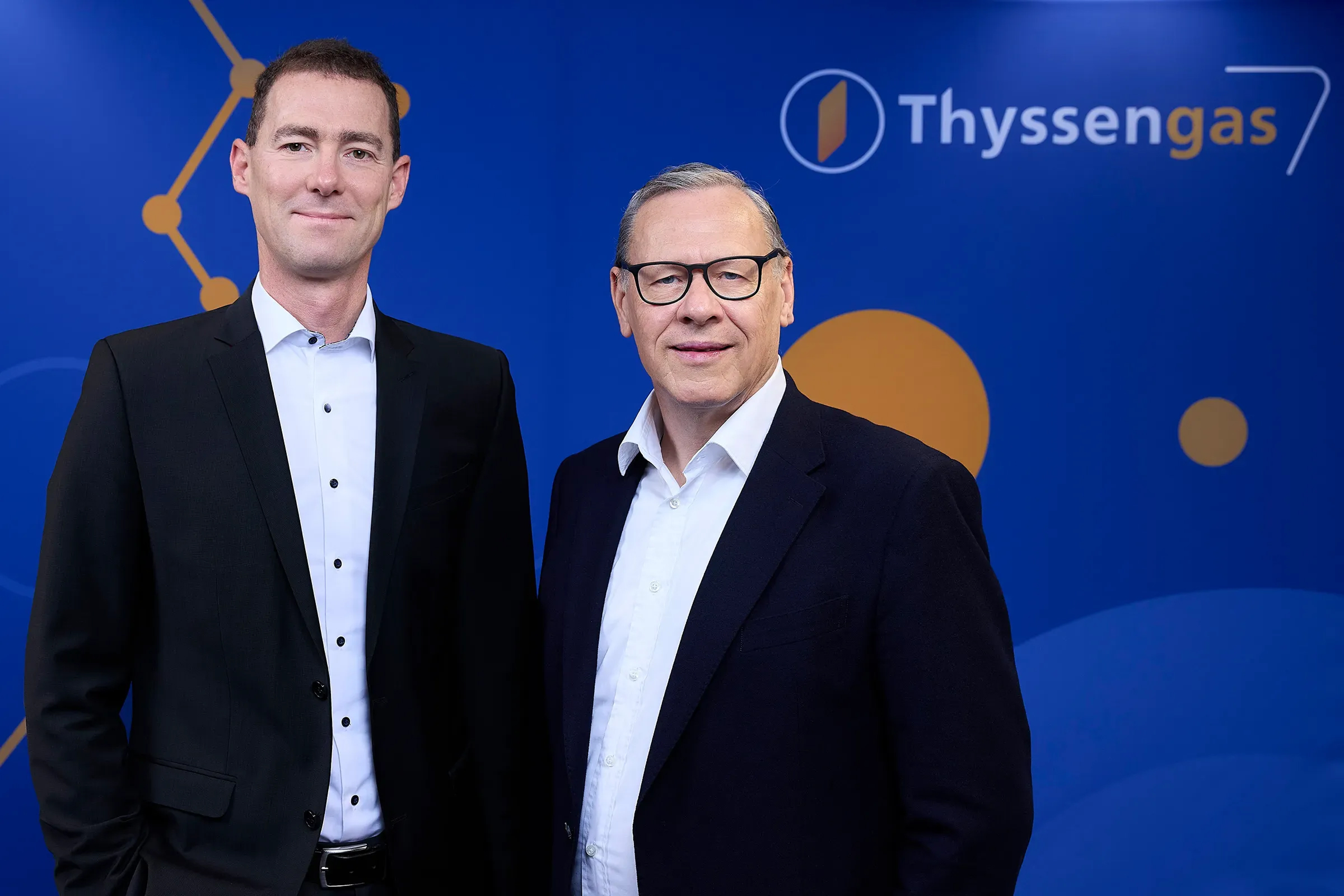"The confirmation of the hydrogen core network is a milestone for Thyssengas and all players along the H2 value chain," says Dr Thomas Gößmann, CEO of Thyssengas GmbH. "This is the starting signal for the realisation of a Germany-wide H2 transport infrastructure - including the H2 pipelines provided by Thyssengas." It should be emphasised that the modelling of the hydrogen core network and the creation of the necessary regulatory and financial framework conditions were implemented in a record time of just 18 months, Dr Gößmann continued.
Thyssengas drives energy transition forward: 1,100 kilometres of hydrogen pipelines for a green gas supply in NRW
Where natural gas still flows today, hydrogen and other green gases will soon be transported - this is the central goal of the Dortmund-based transmission system operator Thyssengas. With the confirmation of the hydrogen core network by the Federal Network Agency on 22 October 2024, Thyssengas has taken a decisive step towards this goal: The official go-ahead has been given for the implementation of the planned hydrogen pipelines. In total, Thyssengas' share of the H2 core network comprises around 1,100 kilometres of pipeline.

H2 supply prospects for North Rhine-Westphalia
Thyssengas plans to realise around 35 new construction and conversion projects with a total length of around 1,100 kilometres of pipeline as part of the H2 core network. The plans aim to connect both the major industrial centres and SMEs in the Münsterland, Ruhr and Rhineland regions to the hydrogen highways. The H2 core network thus creates the prerequisites for the decarbonisation of energy-intensive industries and the green transformation of the domestic economy.
"Our most time-critical H2 projects are now entering the realisation phase, i.e. the necessary planning and approval procedures," explains Dr Gößmann. Thyssengas is continuing to work closely with potential H2 customers, politicians and authorities on projects whose planned commissioning is still further in the future and whose implementation path still needs to be finalised. The aim is to make these projects ready for the market together as the network development process continues.
Success factors for the hydrogen ramp-up
Dr Arne Dammer, Head of Strategy and Innovation at Thyssengas, is optimistic about the further development of the hydrogen market despite the many unanswered questions.
"We are currently transforming our energy system and shaping a completely new energy market for hydrogen. It is therefore normal that there are still some uncertainties regarding the concrete organisation of this transformation. Accordingly, we can only proceed step by step and all players must be prepared to proactively shape this phase," says Dr Dammer.
In his view, there are three factors that are particularly important to kick-start the hydrogen ramp-up:
- Commitment: The industry's previously non-binding declarations of intent regarding future hydrogen requirements must be converted into binding contracts in a timely manner.
- Future-oriented grid planning: Future grid connections should already be factored in during the preparations for the construction of the core grid lines so that future connections of regional hydrogen customers can be implemented efficiently and without major adjustments.
- From the H2 core grid to the area: It is already important to consider the further distribution of hydrogen from the H2 core grid to the area. Close cooperation with the local distribution network operators is essential for this.
On the occasion of the confirmation of the H2 core network, Dr Thomas Gößmann appeals to politicians, authorities and industry to continue to view the development of the hydrogen network and market as a joint task in the future. "We transmission system operators can provide the transport infrastructure, but we can only manage the ramp-up together. We are at the beginning of the green transformation of our gas supply - we have a marathon ahead of us, not a sprint." Both network construction and market development continue to require political tailwind, courage and pragmatism as well as the cooperation of all players. This applies all the more in view of the upcoming elections and a new German government. There is broad political consensus on the topic of hydrogen, so there should be no stalling in the interests of the business location. Thyssengas will do everything in its power to make hydrogen a success story in Germany, even under changed political conditions, and thus decisively advance the energy transition.
About Thyssengas
Thyssengas GmbH is a German transmission system operator. The company, which celebrated its 100th anniversary in 2021, is headquartered in Dortmund. Thyssengas operates a gas network around 4,400 kilometres long - mostly in North Rhine-Westphalia, but also with individual pipelines in Lower Saxony. It supplies downstream distribution network operators as well as industrial companies and power plants. Thyssengas is focussing on hydrogen as a gaseous energy source for a climate-neutral future. The Dortmund-based network operator is involved in numerous initiatives to this end. At the same time, it is making targeted investments in the conversion of its pipeline system to enable a rapid hydrogen ramp-up as part of the energy transition. The company currently employs around 520 people at seven locations in the grid area, and the number is growing.